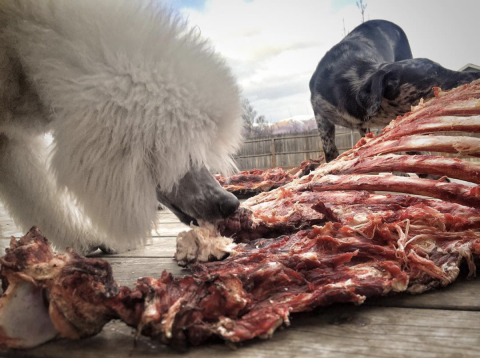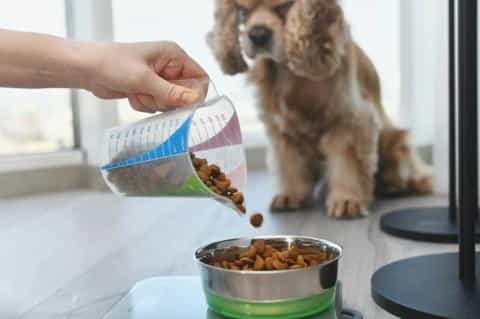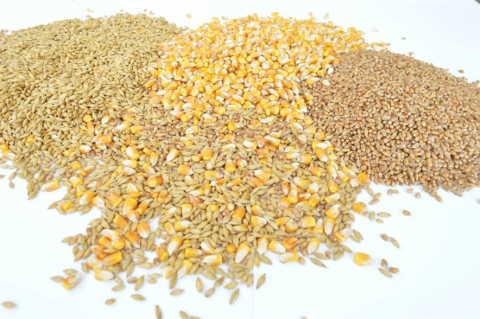
Published on April 4 by Julia
When shopping for dog food, many pet owners instinctively avoid anything containing "by-products," assuming it's code for low-quality or unsafe ingredients. But is that reputation deserved? Are by-products really bad for dogs, or have they just gotten a bad rap?
The truth is more nuanced than a label might suggest. Here's what you need to know.
In the context of pet food, by-products refer to parts of an animal that are left over after the muscle meat has been removed. This can include:
Important: The definition does NOT include hair, horns, hooves, teeth, or intestinal contents (those are classified as waste and are not allowed in regulated pet food).

When sourced and processed correctly, by-products can be highly nutritious for dogs. Organ meats like liver and kidney are rich in essential nutrients such as:
Dogs are natural scavengers with dietary roots in consuming the whole prey, not just the muscle meat. In fact, in the wild, a canine’s first instinct is to eat the organs of its kill, where the most nutrients are stored.
The key is quality. High-quality by-products, especially when specified (e.g., “chicken liver” vs. “animal by-product”), can be very beneficial. Lower-quality or vague by-products (“meat by-product meal”) from unverified sources may be less desirable.
A big part of the negativity stems from marketing. Premium dog food brands often promote “by-product-free” formulas to appeal to human emotions and consumer preference for human-grade meat. Unfortunately, this has led to misconceptions about the nutritional value of animal parts dogs are evolutionarily designed to eat.
In lower-end products, vague or unspecified by-products can be a red flag—especially if the source of the meat isn’t listed (e.g., “animal by-product” instead of “chicken by-product”). This ambiguity makes it hard to judge the safety and origin.

Not necessarily. Consider these guidelines:
✅ Look for Specificity: “Chicken by-product” is better than “meat by-product” or “animal by-product.”
✅ Check the Brand’s Reputation: Trustworthy brands use by-products safely and responsibly.
✅ Watch for Balance: By-products can be part of a healthy diet, but they shouldn’t be the only protein source.
✅ Consider Your Dog’s Needs: Some dogs benefit from organ meats for added nutrients, while others (e.g., with allergies or sensitive digestion) may do better on simpler formulas.
By-products in dog food aren’t inherently bad—in fact, they can be nutritious and biologically appropriate when sourced and labeled responsibly. Instead of writing them off entirely, it’s best to focus on the quality, transparency, and balance of the food overall. A healthy dog doesn’t need “human-grade filet mignon”—they need species-appropriate nutrition from trustworthy ingredients, even if it doesn’t sound glamorous.
Discover More Content





